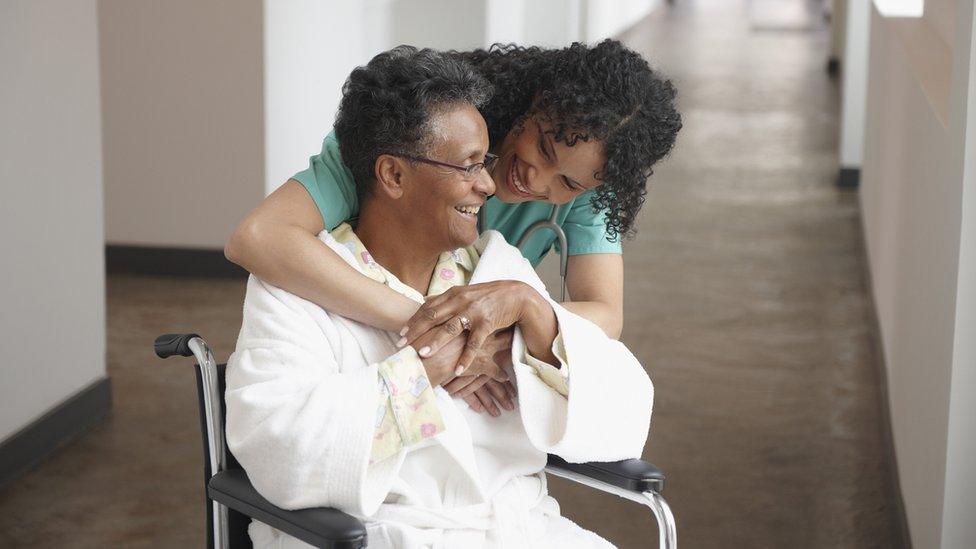Social Care: No better time to be a care worker, public told
- Published

The UK government has launched a campaign to recruit carers in England, with more than 100,000 roles currently empty in the sector.
The drive - which will run on television, radio and social media - highlights the difference care staff can make to people's lives.
"There's no better time to become a care worker," the adverts will say.
But care leaders have warned the initiative will not be enough to tackle deep rooted problems in the industry.
Ministers hope the ads will encourage more people into careers that support those who are older or disabled.
The "" campaign will tell the public that "there's no better time to become a care worker", encouraging individuals to pursue an "exciting and rewarding" career with "variety" and "flexible hours".
The Department for Health and Social Care (DHSC) said the online drive would run for five months. The TV advert, premiered on Wednesday, will run until 21 November on ITV, Sky and Channel 4.
The most recent official data suggests there are now more than 112,000 job vacancies in England's social care sector.
Care providers say that current underfunding in the sector undermines the campaign and they are losing staff because individuals are being offered better salaries in other industries.
Care staff are burnt out by pandemic pressures, they say, with some leaving due to the prospect of Covid vaccinations being mandatory.
They have also warned that the sector is struggling to provide safe care, and some services are having to turn patients away or hand back care packages due to staffing shortages.
This is the latest in a series of government recruitment drives in the last eighteen months. It remains unclear how many people have taken up jobs as a result.
The Independent Care Group said the campaign was "well-meaning" but that the government had "failed to see just how deep the crisis in recruitment has become in social care".
THE FLUX IS COMING: Terrifying forces are stirring all across the universe, can the Doctor save us?
SECRETS AND LIES ARE UNCOVERED: Shetland returns for a new series on ┤¾¤¾┤½├¢ iPlayer